Fendi’s Serge Brunschwig is bringing the brand back its roots ahead of 2025 centenary, saluting loyal Italian staff at the spring/summer 2024 menswear launch – hosted in its Florence factory
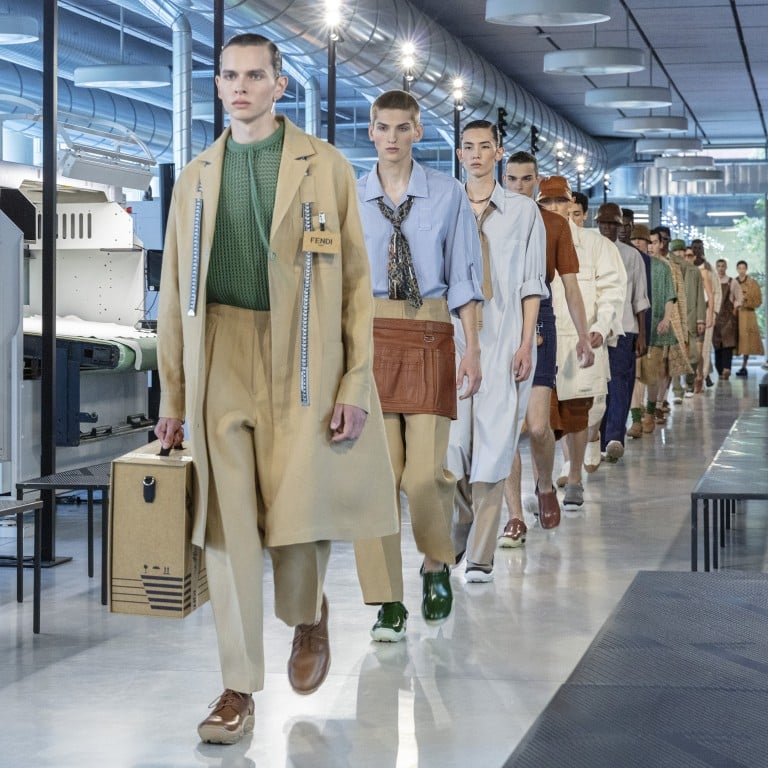
With Fendi getting ready to celebrate its 100th anniversary in 2025, CEO Serge Brunschwig feels it’s a good time to “go back to the origins”, as he explained on the day of the label’s spring/summer 2024 menswear show in June.
The Italian brand had invited guests to its recently opened leather goods factory on the outskirts of Florence, where the show took place as part of the biannual Pitti Uomo men’s fair. Silvia Fendi, the family scion who is artistic director of accessories and menswear at the LVMH-owned label, came up with the idea of showing the collection inside the structure, the first leather goods factory in the world to achieve LEED Platinum certification (LEED stands for Leadership in Energy and Environmental Design).
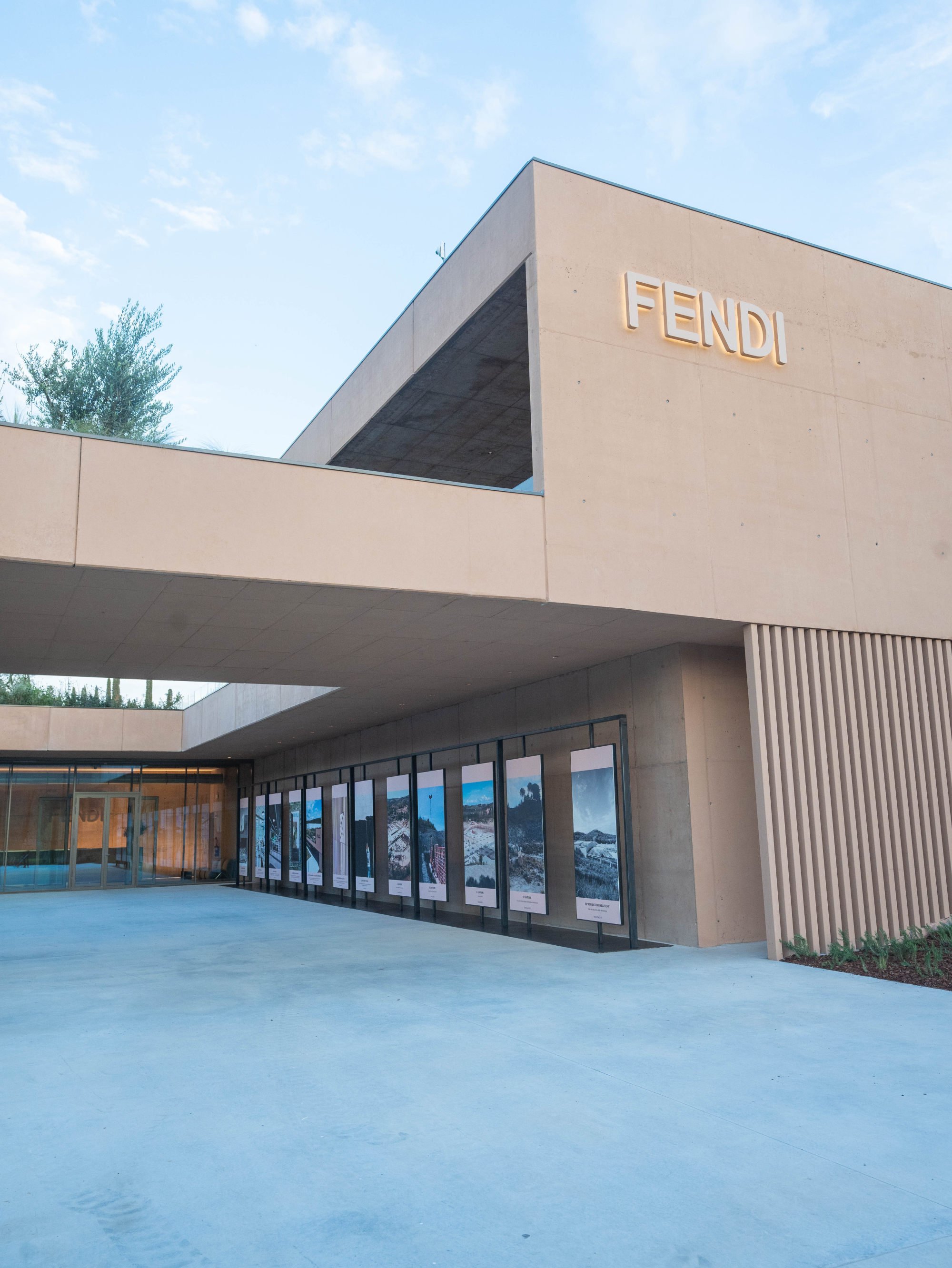
Brunschwig fully supported her decision, which allowed the brand not only to showcase to media, journalists and clients the state-of-the-art facilities where its products are made but also to shine the spotlight on the workers behind its creations, the unsung heroes who turn designers’ flights of fancy into reality.
“100 years ago [founders] Edoardo and Adele Fendi opened a small something in Via del Plebiscito in Rome but what was it? A store? An atelier?” says Brunschwig. “It’s not like you have an atelier somewhere far but they opened a place where customers could place orders and they made fur coats and bags in the same building. The artisan was someone working in front of the customers but then the whole thing grew and became an industry and you needed a factory, a plant; it’s different now but also returning to the origin.”
Looking at Fendi’s rapid growth, which began after the LVMH acquisition in 2001 and accelerated under the tenures of CEOs Michael Burke and Pietro Beccari, it’s easy to see why the brand needs a fully owned factory just for its leather goods. (Fendi makes ready-to-wear in Rome and other locations in Italy, and shoes in another factory in the Marche region.)
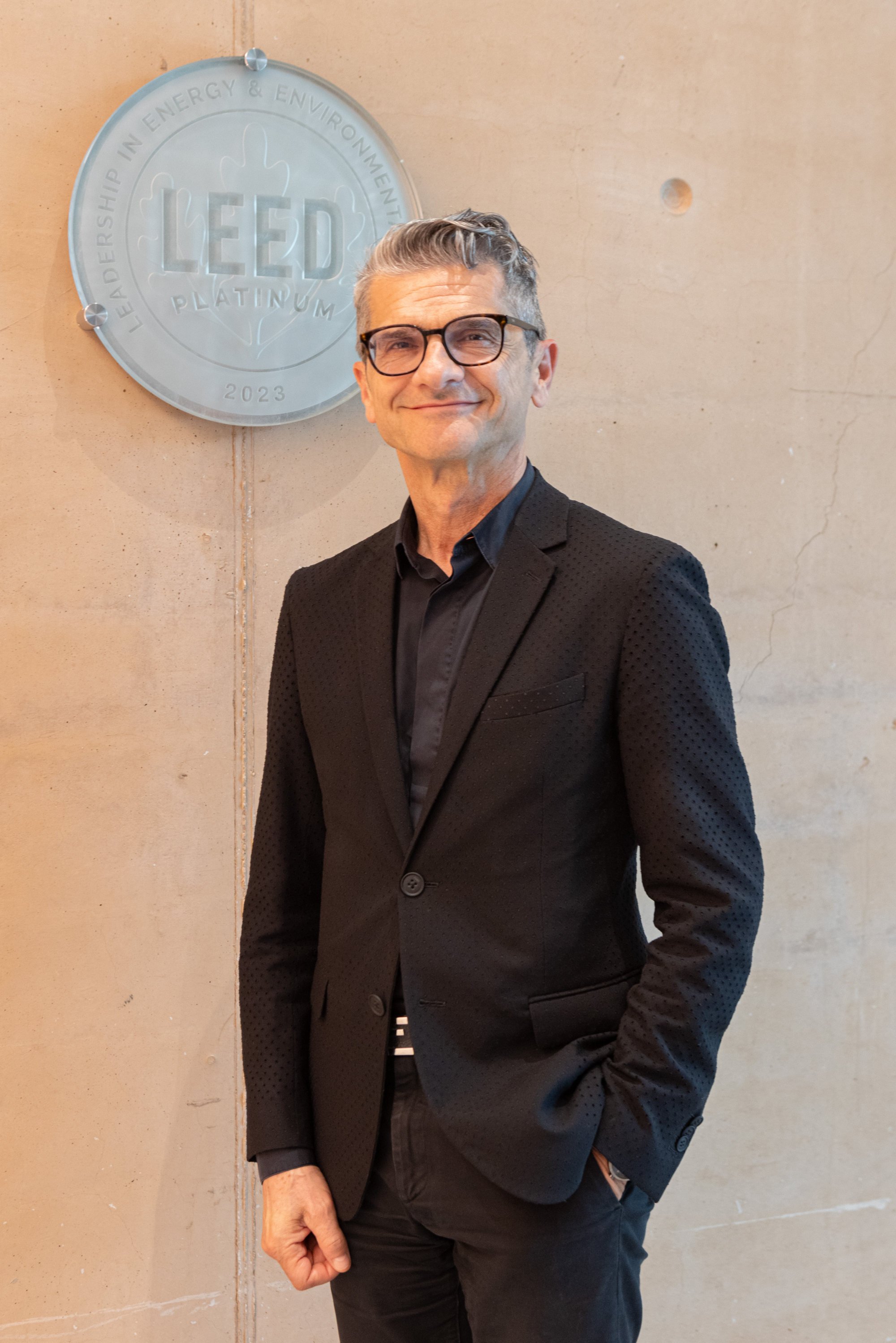
Most Italian luxury labels, including Fendi, have long relied on a series of small, independent family-owned suppliers based all over Italy to make their products. In recent years, some of them have started centralising things under one roof, while also continuing to work with those small subcontractors and even invest in them in order to preserve their know-how.
Brunschwig believes that Fendi’s commitment to safeguarding an industry that may be thriving but is at the same time struggling to attract young workers is a new way of looking at sustainability. “When we speak about sustainability, I’m taking this angle: I’m supporting the sustainability of this system because there will be the people who will be doing this job tomorrow, and I’m working on the sustainability of this territory because it can offer jobs to families who are able to stay. This is what I think sustainability is,” he says. “Who are these people of tomorrow and replacing those who are retiring? It’s absolutely our priority to attract people and train them and communicate to them, which is why we do a show like this one.”
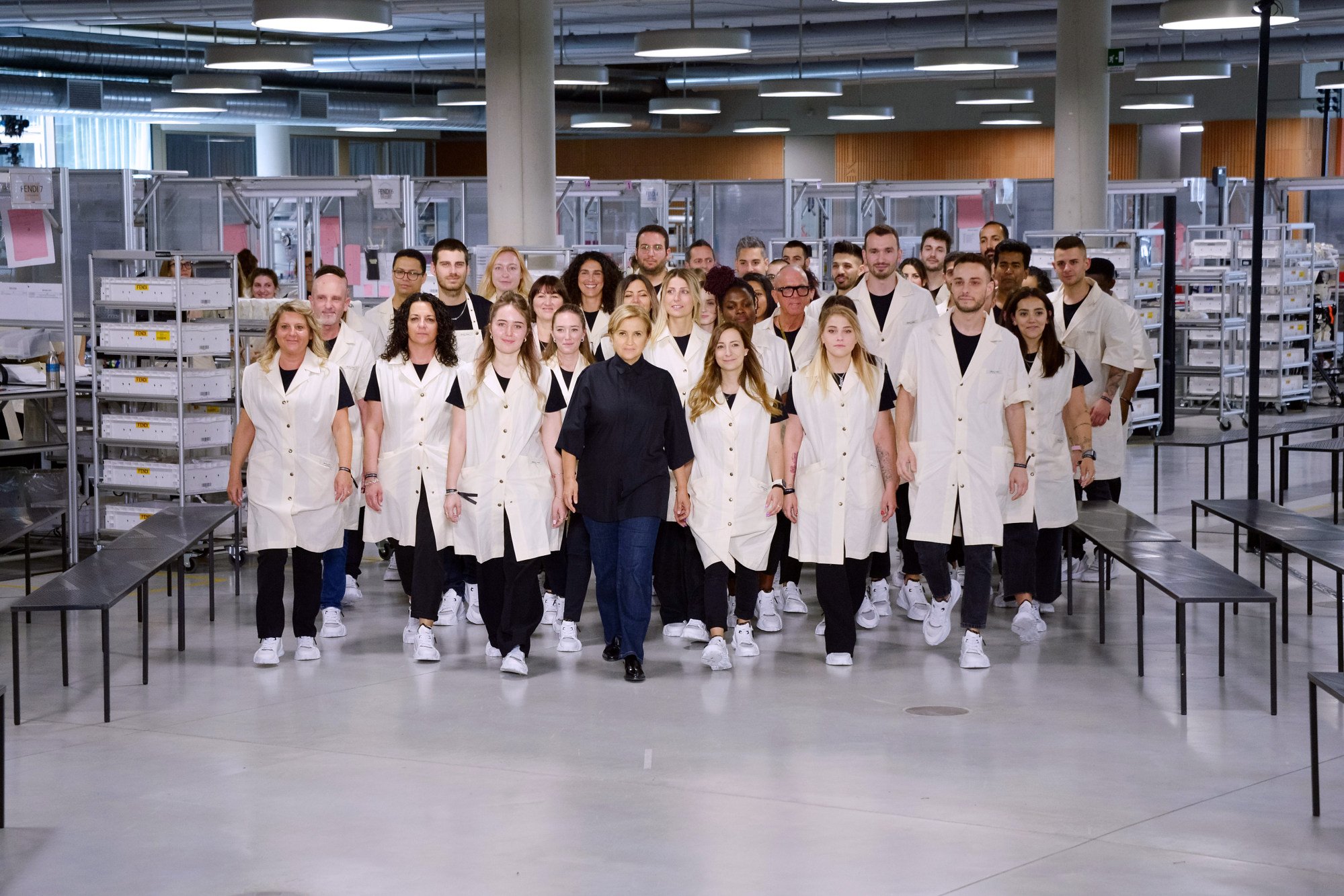
The show, which culminated with Silvia Fendi and the entire factory workforce walking down the runway to take the final bow, some of them visibly fighting tears, was indeed an apt way to spotlight the makers of Fendi’s prized accessories, such as its signature Baguette and Peekaboo bags.
In an industry where glamour and glossy images reign supreme, it was refreshing to pull back the curtain and pay homage to those who actually make the products that a rising number of luxury lovers around the world covet. As Silvia Fendi put it in another interview, “there would be no Fendi without them.”
Surrounded by the verdant hills of the Tuscan countryside and featuring glass walls with terracotta cladding carved with the double F Fendi logo, the factory looks more like the sleek headquarters of a Silicon Valley tech company than a fabric factory in the middle of nowhere.
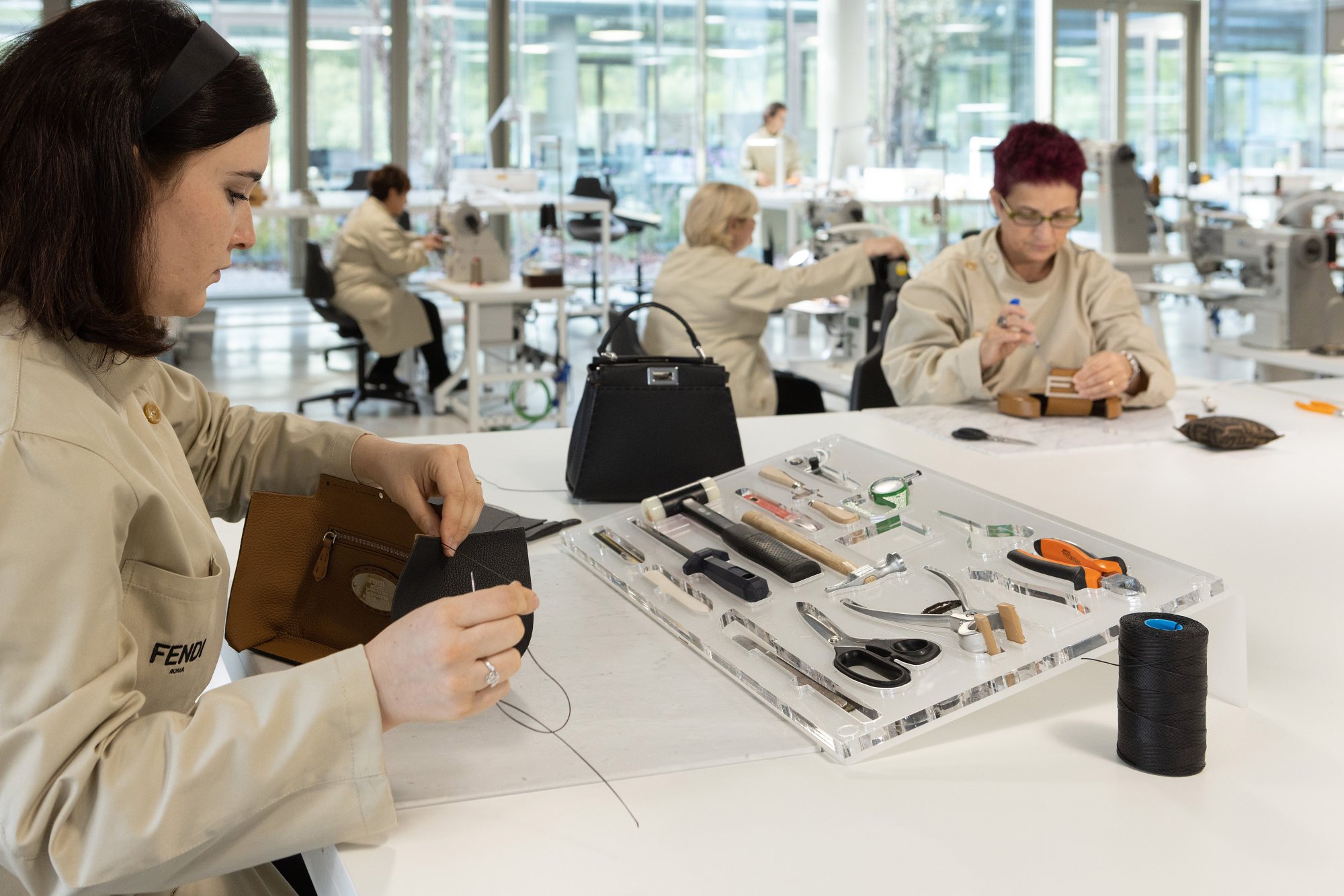
Brunschwig is proud of the structure – he even mentions the gourmet food served in the canteen, catered by a famous Italian chef – and emphasises again that these days sustainability means a lot more than just an eco-friendly collection.
“Sustainability is giving the maximum information: this skin comes from there and was treated this way and then was assembled there by this person; it is about traceability,” he says. “What’s the impact on the world of buying something? The person who made [this piece] is a very important member of the Fendi family, developed and made this bag with their hands or with a machine, which they control.”
He agrees that at a time of overconsumption – even more so in the fast-growing luxury industry – buying less but better is key. He also says that when it comes to a fraught and hard-to-measure concept like sustainability, perfection is not the goal. “Working on sustainability, when it’s not only a buzzword, is very interesting but you can always improve,” he admits.
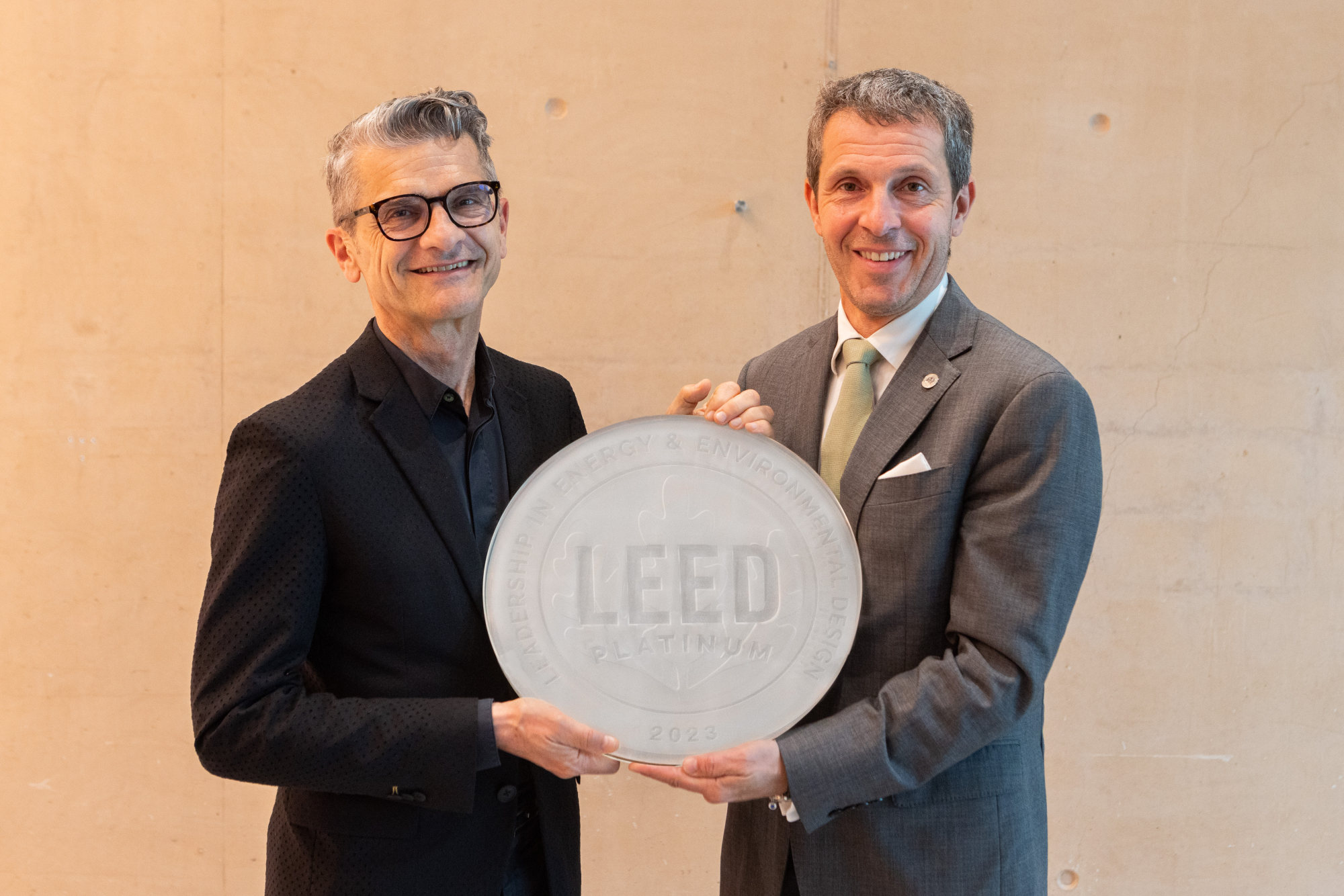
Brunschwig, who before joining Fendi worked for fellow LVMH label Dior and has lived in New York and Hong Kong, is sanguine about the prospects of the luxury industry, and also the future of those cities. They may have lost some of their lustre, especially after the coronavirus pandemic, but are still global hubs to be reckoned with.
“It’s good to have grey hair because you’ve seen a lot in your life,” he says. “I lived in both Hong Kong and New York, and they’re both the kind of places you should never discount. They can go through problems one day but don’t write them off. New York will come back and when it comes back, it’s going to be better. There’s this fascination with Hong Kong and people are rediscovering it and it’s still a place to be. It’s back, which is great to see, and I’m happy for the people living there. I’m attached to Hong Kong so to see it in good shape is super.”

- Fendi’s CEO Serge Brunschwig is so proud of the LVMH-owned brand’s sleek new factory, that as part of the Pitti Uomo men’s fair, he staged its latest runway there
- Silvia Fendi, artistic director of accessories, suggested the show be held at the factory near Florence, the first leather goods factory to achieve LEED Platinum certification